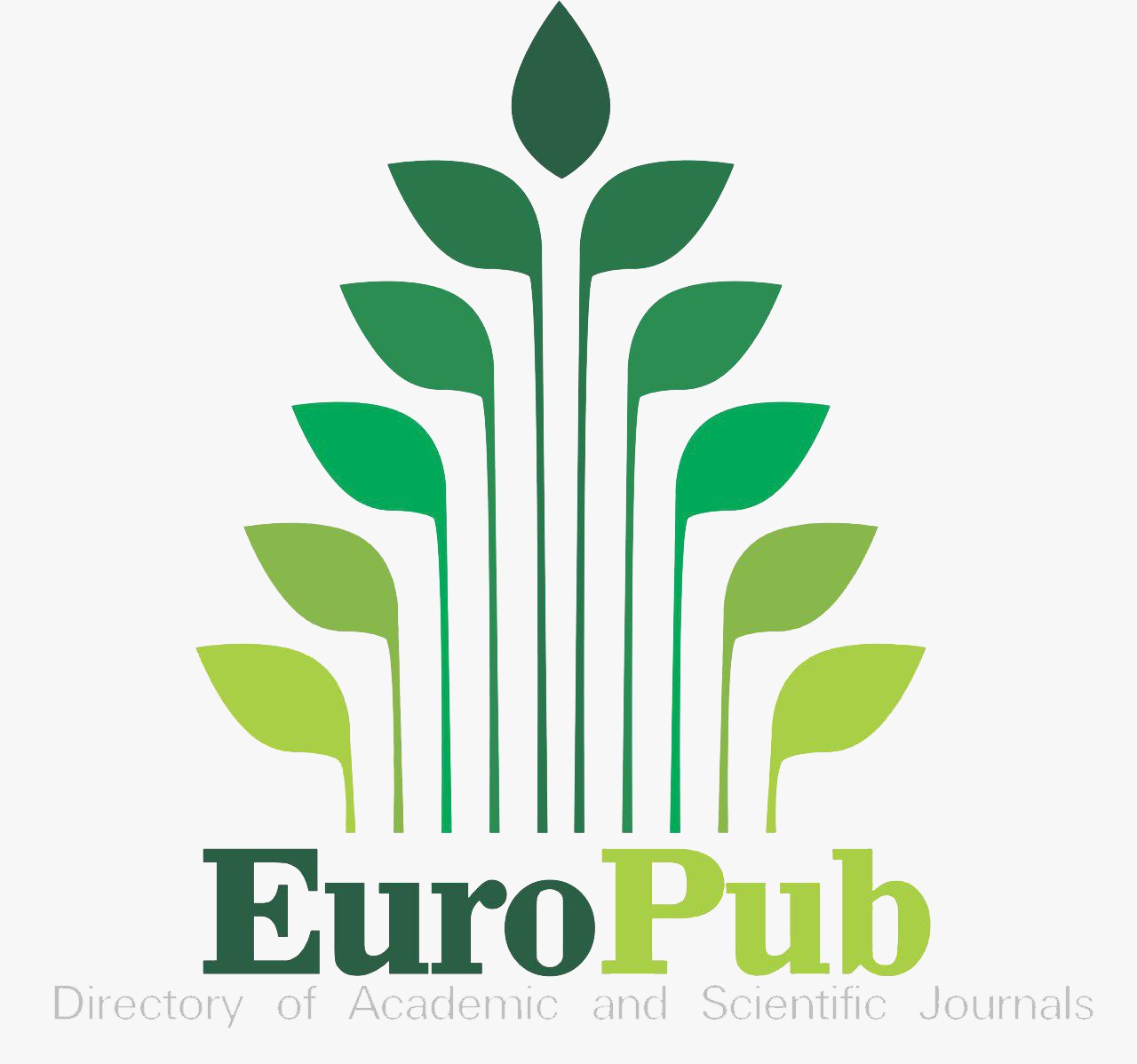CONSTRUCTING CITIZENSHIP FROM A CARE BASED ON INTEGRAL LEARNING: A DOCUMENTARY AND BIBLIOMETRIC REVIEW OF TEACHING PRACTICES IN SIXTH GRADE OF SECONDARY EDUCATION
DOI:
https://doi.org/10.56219/dialctica.v1i26.4368Keywords:
School citizenship, Care, Integral learning, Secondary educationAbstract
This review article examines the scientific production published between 2015 and 2024 that addresses the construction of citizenship from the care of self and others as a pedagogical tool for comprehensive learning in sixth grade students of basic secondary education. Through a mixed methodology, which integrates qualitative content analysis and bibliometric evaluation, the main theoretical approaches, associated pedagogical practices and emerging research trends were identified. The study was based on selection and inclusion criteria, focused on indexed articles, published in Spanish and English, from scientific and academic databases and repositories. The scope of the review was limited to school experiences at the secondary school level, focusing on the sixth grade as this is a decisive formative stage in the consolidation of ethical, political and community subjectivities. The analysis revealed that care has been progressively incorporated as a structuring dimension of school citizenship, transforming the traditional understanding of this and offering new routes for pedagogical design. It also revealed a conceptual expansion of integral learning and a methodological diversity in the academic approach to the subject. Among the main findings are the reconfiguration of the classroom as a space for recognition, participation and collective construction of meaning, as well as the need to overcome normative instructional models to make way for formative practices based on interdependence, empathy and commitment. The review concludes by pointing out significant gaps in the approach to sixth grade as a specific population, as well as a scarce systematization of experiences that integrate citizenship and care as a transversal formative axis.
Downloads
References
Badel Gómez, M. F., Reyes Ruiz, L., & Guzmán Ibarra, I. (2023). Estructuración de ciudadanía planetaria desde una educación global e intercultural. Estudios del Desarrollo Social: Cuba y América Latina, 11(2), 1–18. https://doi.org/10.54736/eds.v11i2.680
Ballesteros Alarcón, V. M., & Martín-Arroyo Sánchez, D. J. (2024). Prácticas sobre los ODS por una educación para la ciudadanía mundial. UNES. Universidad, Escuela y Sociedad, 17, 77–90. Recuperado de https://doi.org/10.30827/unes.i17.27201 DOI: https://doi.org/10.30827/unes.i17.27201
Bello Ramírez, A. (2024). Pedagogías “para agarrarse a la vida”: prácticas de cuidado del cuerpo-territorio en medio del conflicto armado en Buenaventura, Colombia. Debates en Sociología de la Educación, 15(31), 1–20. https://doi.org/10.32870/dse.v0i31.1524 DOI: https://doi.org/10.32870/dse.v0i31.1524
Benjumea-Pérez, M. y Mesa-Arango, A. (2021). Educación y formación para la ciudadanía en y desde la universidad: aportes para el debate. FORUM. Revista Departamento Ciencia Política, 20, 86-109. https://doi.org/10.15446/frdcp.n20.91013 DOI: https://doi.org/10.15446/frdcp.n20.91013
Biesta, G. (2011). Learning democracy in school and society: Education, lifelong learning, and the politics of citizenship. Sense Publishers. https://books.google.com/books/about/Learning_Democracy_in_School_and_Society.html?id=zSr_SOVO8O4C
Bronfenbrenner, U. (2005). Making human beings human: Bioecological perspectives on human development. SAGE Publications.
Cauich Alcalá, G. L., & Heredia Soberanis, N. G. (2023). Educación para la ciudadanía en las aulas de primaria: una revisión sistemática. Sinéctica, (60), 1–22. https://doi.org/10.31391/s2007-7033(2023)0060-003 DOI: https://doi.org/10.31391/S2007-7033(2023)0060-003
Donthu, N., Kumar, S., Mukherjee, D., Pandey, N., & Lim, W. M. (2021). How to conduct a bibliometric analysis: An overview and guidelines. Journal of Business Research, 133, 285–296. https://www.sciencedirect.com/science/article/abs/pii/S0148296321003155 DOI: https://doi.org/10.1016/j.jbusres.2021.04.070
Eisner, E. W. (2002). The Arts and the Creation of Mind. Yale University Press. https://yalebooks.yale.edu/book/9780300105117/the-arts-and-the-creation-of-mind/
Elías, M. E. (2015). La cultura escolar: Aproximación a un concepto complejo. Revista Electrónica Educare, 19(2), 285–301. https://doi.org/10.15359/ree.19-2.15 DOI: https://doi.org/10.15359/ree.19-2.16
Espinoza Zúñiga, Claudia. (2021). Cuidado mutuo en la comunidad docente. Herramientas para fortalecer el vínculo entre educadores. Organización de Estados Iberoamericanos (OEI). Recuperado de https://www.educarchile.cl/recursos-para-el-aula/cuidado-mutuo-en-la-comunidad-docente-herramientas-para-fortalecer-el-vinculo
Fernández Enguita, M. (2009). Educar en tiempos inciertos. Editorial Morata. https://content.e-bookshelf.de/media/reading/L-3561956-cf16b0f566.pdf.
Flores Suárez, A., & Herrera Beltrán, I. (2020). Convivencia escolar: Dimensión y evolución. Revista Luciérnaga, 13(25), 74–89. https://doi.org/10.33571/revistaluciernaga.v13n25a5 DOI: https://doi.org/10.33571/revistaluciernaga.v13n25a5
Freire, P. (2008). Pedagogía de la autonomía. Siglo XXI Editores.
Gergen, K. (2009). Relational being: Beyond self and community. Oxford University Press.
Gergen, K. J. (2009). El ser relacional: más allá del yo y de la comunidad. Oxford University Press.
Gilligan, C. (1982). In a Different Voice: Psychological Theory and Women’s Development. Harvard University Press. https://books.google.com/books/about/In_a_Different_Voice.html?id=XItMnL7ho2gC
Haste, H. (2004). Constructing the citizen. Political Psychology, 25(3), 413–439. https://psycnet.apa.org/record/2004-14415-005 DOI: https://doi.org/10.1111/j.1467-9221.2004.00378.x
Held, V. (2006). The Ethics of Care: Personal, Political, and Global. Oxford University Press.
Held, V. (2006). The ethics of care: Personal, political, and global. Oxford University Press. DOI: https://doi.org/10.1093/0195180992.001.0001
Herrera Mantilla, J. S., & Tuay Sigua, R. N. (2022). Formación ciudadana: Enfoques en la práctica pedagógica de docentes de básica primaria. Revista Senderos Pedagógicos, 13, 31–47. https://doi.org/10.53995/rsp.v14i14.1381 DOI: https://doi.org/10.36436/22564527.478
Lara-Salcedo, L. M., & Suarez-Rivero, N. D. (2021). Formación ciudadana en la infancia: Reflexiones desde la revisión teórica. Magis. Revista Internacional de Investigación en Educación, 14, 1–21. https://doi.org/10.11144/Javeriana.m14.fcir DOI: https://doi.org/10.11144/Javeriana.m14.fcir
Martínez Lirola, M. (2021). Aprendizaje cooperativo y desarrollo de competencias sociales: Ejemplos en una clase de lengua inglesa. Revista Guillermo de Ockham, 19(1), 91–99. https://doi.org/10.21500/22563202.4635 DOI: https://doi.org/10.21500/22563202.4635
Martínez Lirola, María. (2019). Una propuesta didáctica para introducir la educación para la ciudadanía global en la enseñanza universitaria. Educare, 23(2), 1–20. Recuperado de http://dx.doi.org/10.15359/ree.23-2.15 DOI: https://doi.org/10.15359/ree.23-2.15
Mejía-Rodríguez, Dania Liz. (2024). Educación para la ciudadanía y para la paz: Reflexiones desde la sociología de la educación. Perfiles Educativos, 46(184), 162–177. Recuperado de https://www.scielo.org.mx/scielo.php?pid=S0185-26982024000200162&script=sci_arttext DOI: https://doi.org/10.22201/iisue.24486167e.2024.184.61156
Molina Ramírez, A. E., Contreras Rincón, D. A., & López Meneses, E. (2023). Ciudadanía y educación: una aproximación como campo de conocimiento. RAES. Revista de Artes y Educación Social, 5(1), 201–218. https://www.scielo.org.mx/scielo.php?script=sci_arttext&pid=S2448-878X2023000100201 DOI: https://doi.org/10.48102/rlee.2023.53.1.542
Moreno Guaicha, J. A., Mena Zamora, A. A., & Zerpa Morloy, L. I. (2024). Modelos de aprendizaje en la transición hacia la complejidad como un desafío a la simplicidad. Sophia, Colección de Filosofía de la Educación, (36), 69–112. https://doi.org/10.17163/soph.n36.2024.02 DOI: https://doi.org/10.17163/soph.n36.2024.02
Murillo, F. J., & Hernández-Castilla, R. (2022). Escuelas democráticas: cultura escolar, justicia y ciudadanía. Revista Iberoamericana de Educación, 90(2), 27-45. https://www.scielo.cl/scielo.php?pid=S0718-73782024000200011&script=sci_arttext
Noddings, N. (2002). Educating moral people: A caring alternative to character education. Teachers College Press.
Noddings, N. (2002). Starting at Home: Caring and Social Policy. University of California Press. DOI: https://doi.org/10.1525/9780520927568
Noddings, N. (2013). Caring: A relational approach to ethics and moral education (2ª ed.). University of California Press.
Noddings, N. (2013). Caring: A Relational Approach to Ethics and Moral Education. University of California Press. https://philpapers.org/rec/NODCAR-2
Nussbaum, M. (2000). Women and Human Development: The Capabilities Approach. Cambridge University Press. DOI: https://doi.org/10.1017/CBO9780511841286
Pérez Galván, L. M., & Ochoa Cervantes, A. de la C. (2017). El aprendizaje-servicio (APS) como estrategia para educar en ciudadanía. ALTERIDAD. Revista de Educación, 12(2), 193–204. https://doi.org/10.17163/alt.v12n2.2017.04 DOI: https://doi.org/10.17163/alt.v12n2.2017.04
Pianta, R. C., Hamre, B. K., & Allen, J. P. (2012). Handbook of research on student engagement. Springer.
Quiceno Botero, F. J., Betancur Lozano, M. J., & Rojas Betancur, H. M. (2020). La enseñanza en ciudadanía: Nuevas exigencias para la escuela. Sophia, 16(1), 65–75. https://doi.org/10.18634/sophiaj.16v.1i.906 DOI: https://doi.org/10.18634/sophiaj.16v.1i.906
Santos Guerra, M. A. (2020). La escuela que aprende: Prácticas pedagógicas transformadoras. Narcea Ediciones. https://edmorata.es/wp-content/uploads/2020/09/SantosGuerra_PRW.pdf
Schulz, W., Ainley, J., Fraillon, J., Losito, B., Agrusti, G., & Friedman, T. (2018). Becoming Citizens in a Changing World: IEA International Civic and Citizenship Education Study 2016 International Report. Springer. https://link.springer.com/book/10.1007/978-3-319-73963-2 DOI: https://doi.org/10.1007/978-3-319-73963-2
Souto-Manning, M. (2010). Freire, Teaching, and Learning: Culture Circles Across Contexts. https://books.google.com.co/books?hl=en&lr=&id=J-UPa3nLTHsC&oi=fnd&pg=PR9&ots=jSlAZSVDeH&sig=OQGp2miPnM26kI6hKIrwmO0fIKw&redir_esc=y#v=onepage&q&f=falsePeter Lang.
Tonucci, F. (2019). La ciudad de los niños: Un experimento de democracia real. Graó. https://urbanitasite.files.wordpress.com/2020/02/tonucci-la-ciudad-de-los-nic3b1os.pdf
Treviño, Ernesto & Miranda, Catalina. (2023). Educación y ciudadanía en tiempos de crisis: Un campo en busca de horizontes. Pensamiento Educativo: Revista de Investigación Educacional Latinoamericana. 60. 10.7764/PEL.60.2.2023.1. DOI: https://doi.org/10.7764/PEL.60.2.2023.1
Tronto, J. C. (1993). Moral boundaries: A political argument for an ethic of care. Routledge.
Wood, Bronwyn & Taylor, Rowena. (2017). Caring citizens. 10.4324/9781315686752-5. DOI: https://doi.org/10.4324/9781315686752-5
Downloads
Published
How to Cite
Issue
Section
License

This work is licensed under a Creative Commons Attribution-NonCommercial-ShareAlike 4.0 International License.
La revista Dialéctica conserva los derechos patrimoniales (copyright) de las obras publicadas, que favorece y permite la reutilización de los mismos bajo la licencia Creative Commons Atribución-NoComercial-CompartirIgual 4.0 , por lo cual se pueden copiar, usar, difundir, transmitir y exponer públicamente, siempre que se cite la autoría y fuente original de su publicación (revista, editorial, URL y DOI de la obra), no se usen para fines comerciales u onerosos y se mencione la existencia y especificaciones de esta licencia de uso. Si remezcla, transforma o crea a partir del material, debe distribuir su contribución bajo la misma licencia del original.















